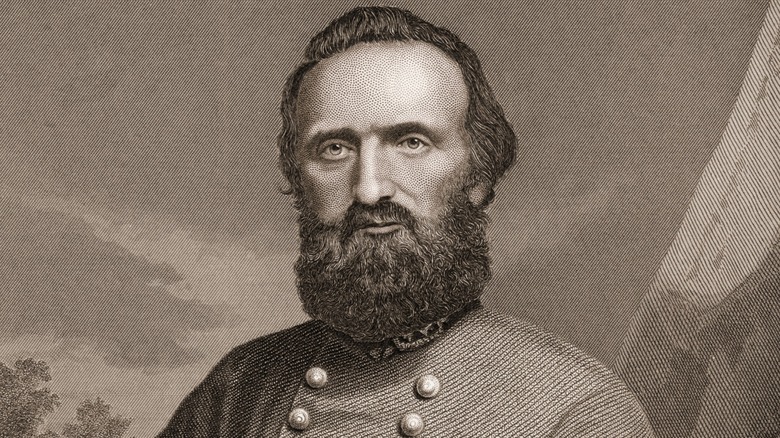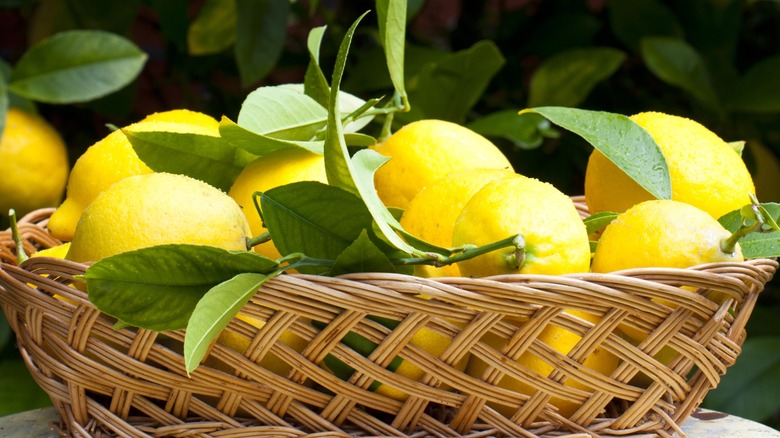Were Lemons Actually Stonewall Jackson's Favorite Fruit?
Confederate General Thomas J. "Stonewall" Jackson is one of the Civil War's best-known generals, although his service in the Confederate States Army and his enslavement of six people make him controversial today. Still, Stonewall Jackson has taken on legendary status due to his military prowess and his untimely death from friendly fire at the Battle of Chancellorsville in 1863. Surprisingly, one of the most enduring myths about him is his supposed love of eating lemons. In fact, the story of Stonewall Jackson sucking on lemons has become so entrenched in Jackson-related lore that people leave lemons on his grave in Lexington, Virginia's Oak Grove Cemetery.
It turns out that this tale of lemon love has been blown out of proportion, likely thanks to three accounts of Jackson eating a single lemon at Gaines' Mill on June 27, 1862. In his 1997 book "Stonewall Jackson: The Man, The Soldier, The Legend," Jackson's biographer, James I. Robertson Jr., states unequivocally that Jackson was not lemon-obsessed. In fact, the general loved eating a wide variety of fruits, though Robertson's research failed to uncover documentation of any preference for lemons. According to him, Stonewall Jackson preferred peaches, but ate just about any kind of fruit available.
Where did the Stonewall Jackson lemon myth come from?
Stonewall Jackson suffered from dyspepsia, or chronic indigestion. Jackson, a man famous for his temperance — he avoided alcohol in his later years — and self-control, followed a strict diet as part of his dyspepsia treatment. He was a believer in the common 19th century practice of hydropathy (aka the "water cure"), and visited hydropathic centers during his travels, where he sweated out supposed impurities, bathed in pure water, exercised, and followed the prescribed simple diet. Jackson also had to practice self-care in the field to control his dyspepsia. Diet, exercise, rest, and temperance were the pillars of his treatment plan. It's no wonder that he enjoyed eating fresh fruit, including lemons, whenever he got the chance. They were on his eating plan, whereas hardtack and salt pork, Civil War battlefield staples, were not.
Stonewall Jackson's military prowess was legendary during his lifetime, and his accidental death only added to the Jacksonian mythos. Everything about the famous general — his military genius, his leadership skills, his lifestyle — took on extra significance after his passing. When three men who knew Jackson personally, Henry Kyd Douglas, Raleigh E. Colston, and Richard Taylor, wrote of their experiences at the Battle of Gaines' Mill, including vivid descriptions of Stonewall Jackson eating a lemon, the citrus fruit became part of Jackson's enduring lore. James I. Robertson Jr., Jackson's biographer, wrote that he had tried mightily to dispel the idea that lemons were Stonewall Jackson's favorite fruit, as did Raleigh E. Colston, Jackson's fellow professor at the Virginia Military Institute. Neither man succeeded, and the lemon legend lives on.

